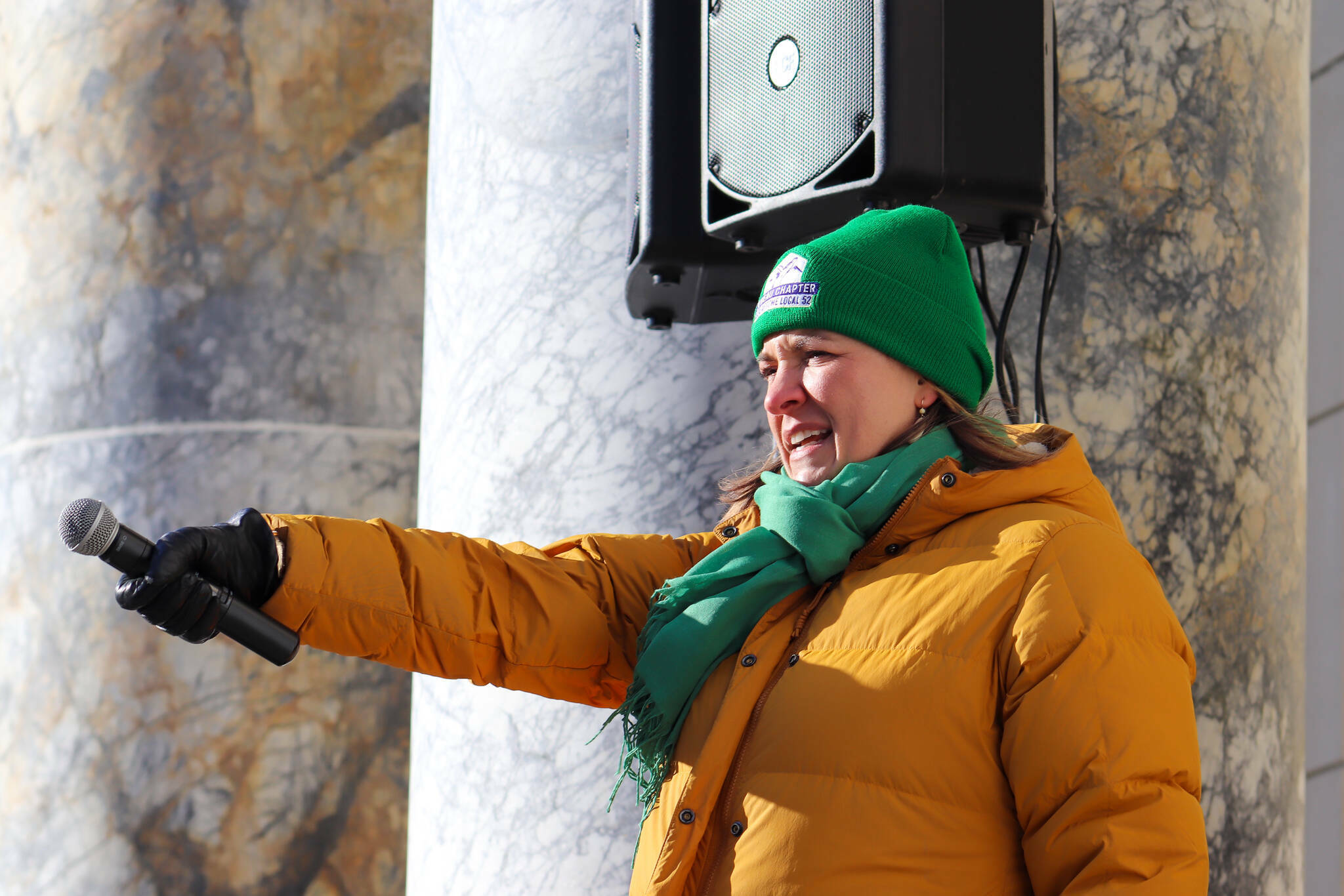A long-delayed study of state employee salaries has missed yet another deadline, to the ire of legislators and union officials who say it’s a blatant effort by Gov. Mike Dunleavy to bury data showing state workers’ pay isn’t competitive.
The delay is infusing rancor into this year’s contract negotiations between employees’ unions and the state, and costing taxpayers extra money via a contract extension to the company doing the study. Dunleavy administration officials have said the additional time was needed to due to legislation and collective bargaining agreements enacted last year that might have altered the parameters of the $1 million study approved by the Legislature in 2023.
However, documents show part of the modified study parameters include an analysis of salaries at the 50th percentile for certain occupations as well as the 65th percentile, with the higher rate being the state’s declared salary goal. Modifying the parameters could be used to make across-the-board reductions in salaries, which critics say would make state jobs more unappealing at a time when there is a 15% vacancy rate statewide.
Dunleavy’s office did not respond Wednesday to questions from the Empire about why the study is being further delayed, and when it might be completed and made available.
On Wednesday the Democratic-led House State Affairs Committee introduced a nonbinding resolution asking the governor to release “all copies of the statewide salary study.” Rep. Ashley Carrick (D-Fairbanks), the committee’s chair, stated in a written response to questions from the Empire that “when I asked the Department of Administration about the status of the study yesterday (April 1) they said they expect ‘the final report will be released in the near future.’”
“It is very frustrating and disappointing that the administration continues to stall on releasing this important study that was funded by the legislature and was supposed to be used as part of our budget process this year,” she wrote.
The text of the resolution notes “the salary study is a vital tool for decision making between the state and collective bargaining units to ensure that working Alaskans receive fair and competitive wages, and, without the salary study available during the collective bargaining process, it is likely that public sector employee salaries will continue to stagnate and further hinder recruitment and retention in the state.”
In addition, a lawsuit seeking to force the release of an initial version of the study completed last June, plus subsequent relevant data, was filed in February by the Alaska State Employees Association, the state’s largest public employees’ union with more than 8,000 members. That lawsuit is currently stalled with a series of motions hearings that have taken place so far.
Meanwhile, wage information for ASEA’s employees was supposed to be delivered to the Alaska Legislature on March 21 so lawmakers could factor costs into the budget process. But ASEA Executive Director Heidi Drygas said Wednesday ongoing negotiations with the state are being slowed due to the lack of study data, which she argues is likely to show current wages are too low to lure and retain employees.
“We’ve seen a lot of information that public employees are far below their peers,” she said. “Certainly in other western states we have heard from many individuals, legislators…state employees are underwater about 15% to 20%.”
Furthermore, while the statewide vacancy rate is about 16%, “some divisions (are) facing vacancy rates at double that average,” the resolution introduced Wednesday notes.
Besides the issues of public employee vacancies and fairness of pay, a key motivation for the resolution is the unwillingness of the Dunleavy administration to provide any reports collected at the request of the Legislature and vagueness about when data might be released, Carrick said.
“There are larger concerns around the release of the salary study that go beyond public employee compensation for many in the legislature though. When the legislature appropriates money and tells the Administration to do something – in this case spending one million dollars for a salary study to be released in June 2024 – there is an expectation that we get results.
• Contact Mark Sabbatini at mark.sabbatini@juneauempire.com or (907) 957-2306.

